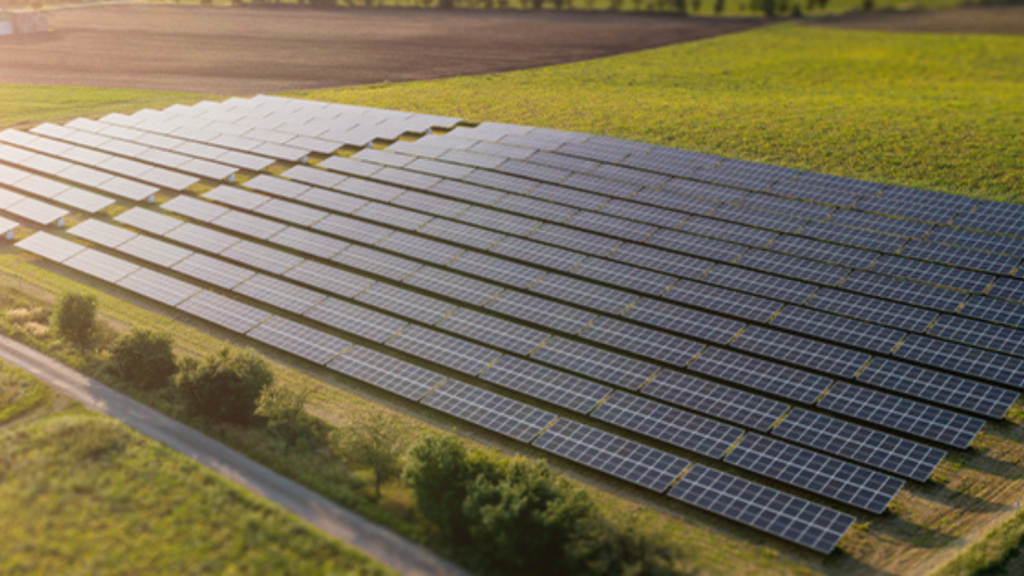Table of Contents
AleaSoft Reports Decline in Electricity Prices Across Most European Markets
AleaSoft Energy Forecasting reported a decline in weekly average electricity prices across most major European markets during the week of Aug. 5. Prices decreased in Belgium, the UK, the Netherlands, France, Germany, the Nordic countries, Spain, and Portugal compared to the previous week.
The exception was Italy, where the average price rose by 7.1% to €128.70 ($141.84)/MWh, the highest among all analyzed markets. The lowest average weekly price was recorded in the Nordic market at €17.22/MWh.
AleaSoft attributed the lower prices to reduced electricity demand in most markets and increased wind and solar energy production in some areas, despite rising gas futures prices above €40/MWh, a level not seen since December 2023.
Italy was the only market that did not see electricity prices drop to or below €0/MWh last week, while several other markets experienced negative prices, with the Dutch market reaching a low of -€59.97/MWh on Aug. 11.
In the second week of August, solar energy production increased in France, Italy, Spain, and Portugal but declined in Germany. On Aug. 5, France set a new record for daily solar energy production at 129 GWh. Germany and Italy also recorded their highest-ever daily solar production figures for August, with 386 GWh on Aug. 6 and 126 GWh on Aug. 9, respectively.

Energy Storage Installations Surge by 61% This Year
Battery manufacturers and cell producers have faced significant challenges in 2024, including shrinking margins and revenues due to slower-than-expected global sales of electric vehicles (EVs). This has led to reduced production volumes.
However, BloombergNEF (BNEF) reports a notable 61% increase in the stationary energy storage market this year. Prices for turnkey storage systems have decreased by 43% compared to 2023, with the cost of two-hour energy storage systems hitting a record low of $115 per kWh in April.
By analyzing the annual output of lithium-ion batteries from Chinese manufacturers and their applications, it has been observed that stationary energy storage now ranks as the second-largest application for battery production, surpassing consumer electronics. The global stationary energy storage market nearly tripled in 2023.
Despite this growth, both stationary storage and consumer electronics remain significantly behind EVs in terms of battery demand. Nevertheless, BNEF highlights a shift in demand ratios from 15-to-1 in favor of EVs to 6-to-1 over the past four years.
The growth in stationary energy storage is accelerating faster than that of EV batteries, albeit from a smaller base. Forecasts indicate continued rapid expansion in this sector, driven by regulatory measures such as China’s mandates for co-locating storage with solar and wind energy, the US Inflation Reduction Act, and similar initiatives in Europe, Japan, and Latin America. Germany and Italy are currently leading the residential market.
Regarding battery chemistry, BNEF anticipates that NMC (nickel-manganese-cobalt) will hold only around 1% of the market share by 2030, as LFP (lithium iron phosphate), known for its lower cost and potential safety advantages, gains market traction.

Mobile Floating Solar Plant Powers Paris Olympic Village
The Seine River hosted the world’s largest mobile floating photovoltaic (PV) plant during the Paris Olympics. This 78 kW solar installation, rented by EDF ENR, supplied green electricity to the central hub of the athletes’ village.
Spanning 470 square meters, the project functioned autonomously, without grid connection, by adjusting its output in real-time to meet the site’s energy demands. Remarkably, the setup was completed and fully operational within 24 hours, involving the deployment of pre-wired solar panels from a shipping container.
Franck Chauveau, Director of Major Project Development for EDF in Île-de-France, highlighted that this was the first time a mobile PV plant was utilized on a water body in such a capacity.
This innovative PV system presents a viable alternative to traditional generators for powering large-scale events like the Olympic Games, trade fairs, and festivals, as well as remote locations not served by the public grid. Voies Navigables de France (VNF), which oversees most of France’s inland waterways, has expressed particular interest in deploying this technology for construction sites along riverbanks.

UK Breaks Records for Battery Storage Installations
The United Kingdom is on track to set a new benchmark for battery storage installations in 2024. According to recent data from certification body MCS, the UK has already surpassed its previous annual record with 7,900 certified battery storage installations in the first half of the year alone. This significant growth follows the introduction of the UK’s Battery Storage Installation Standard in 2021, which regulates installations up to 50 kW and complements existing certifications for small-scale generation.
Since the standard’s inception, there has been a remarkable increase in installations. MCS first recorded battery installations in April 2022, with an average of 34 installations per month for the rest of that year. This figure surged to approximately 400 installations per month in 2023, totaling 4,970 installations nationwide.
This growth reflects a broader trend in the UK’s transition to low-carbon technologies. In addition to the rise in battery storage, MCS data shows that over 80,000 UK homes had certified solar panels installed in the first half of 2024.
Ian Rippin, CEO of MCS, expressed his enthusiasm about the record-breaking figures and emphasized the importance of high-quality installations. He attributed the success to supportive government policies and urged for continued state backing. “Consumer trust in renewable technology, coupled with ongoing government support, is crucial for a successful transition. The Heat Strategy for Wales and initiatives like the Boiler Upgrade Scheme, which offers up to GBP 7,500 ($9,577) for heat pump installations, play a key role in supporting consumers,” Rippin said.
Charlotte Lee, CEO of the Heat Pump Association, acknowledged the sector’s progress in advancing the decarbonization of heat. She called on the UK government to provide clear guidance on the electrification of heat to sustain momentum and ensure continued growth.

Denmark Reinstates Subsidies for Energy Technology Exports
The Danish Energy Agency has reopened its Grant Pool for the Promotion of Energy Export Efforts, offering DKK 9.3 million in funding. These grants are intended to support public-private partnerships, which must include at least one public and one private entity. The public participants can be based either in Denmark or internationally.
Eligible projects may involve activities such as data collection, market analysis, market maturation, and knowledge dissemination, all with the goal of fostering concrete business opportunities and promoting energy exports. The projects should also aim to enhance international cooperation in the energy sector.
Priority will be given to projects that involve any of the 24 countries with which Denmark already has energy cooperation agreements. The application period is open until October 11, with submissions required through the agency’s grant portal.
Since the inception of this funding initiative in 2019, 26 projects have received support, focusing on areas such as energy efficiency, district heating, offshore wind, and biogas across Africa, Asia, Europe, and the Americas. In the 2023 round, DKK 8.5 million was allocated to eight projects, including those focused on district heating in the Netherlands and Poland, sector integration in Brazil and Germany, wind energy in India and Egypt, energy efficiency in the United States, and carbon capture in Australia.

Large-Scale Vertical PV Could Transform European Energy Market
An international research team has examined how large-scale deployment of bifacial vertical agrivoltaics might disrupt the European energy market. They found that east-west oriented vertical PV panels could significantly enhance the integration and balance of the continental power system by 2040.
Their analysis indicates that increasing the use of vertical PV systems, particularly in commercial and industrial settings, could lead to several key benefits. These include a higher share and value of solar power, reduced base-load electricity prices, and improved energy exchange between neighboring countries.
The study highlights that east-west oriented vertical PV panels extend solar generation times to both dawn and sunset, making them more valuable to consumers. Vertical systems typically produce 30% of their output during midday hours, compared to 70% for south-facing PV panels. This configuration reduces peak production but ensures a more consistent output over a longer period, maintaining higher market value.
Using the European Power Market Model (EPMM), which simulates the European wholesale electricity markets and evaluates policy impacts, the researchers found that solar PV capacity could expand from the current 240 GW to between 649 GW and 1,178 GW. The best-case scenario projects that vertical PV could achieve up to a 50% market share.
The model predicts a 2% increase in solar generation by 2030 and a 3.6% increase by 2040. In high PV scenarios, this rise could exceed 5.3%, indicating the significant potential of vertical systems. The study also shows that higher vertical PV utilization could replace gas and nuclear generation, leading to lower power prices due to reduced system costs and curtailment.
Overall, the study suggests that increasing vertical PV could make the European power system more economically and environmentally sustainable, characterized by lower CO2 emissions, reduced fossil fuel reliance, and decreased wholesale electricity prices.

Maysun Solar has been specialising in producing high quality photovoltaic modules since 2008. In addition to the Balcony Solar Power Station, Maysun Solar offers wide variety of full black, black frame, silver, and glass-glass solar panels that utilise half-cut, MBB, IBC, and HJT technologies. These panels offer superior performance and stylish designs that seamlessly blend in with any building. Maysun Solar successfully established offices, warehouses, and long-term relationships with excellent installers in numerous countries! Please contact us for the latest module quotations or any PV-related inquiries. We are excited to assist you.
Reference:
Jowett, P. (2024, August 14). Electricity prices down in most European markets, says AleaSoft. Pv Magazine International. https://www.pv-magazine.com/2024/08/14/electricity-prices-down-in-most-european-markets-says-aleasoft/
Rayner, T. (2024, August 15). Energy storage installations rise 61% this year. Pv Magazine International. https://www.pv-magazine.com/2024/08/15/energy-storage-installations-rise-61-this-year/
Puthod, F. (2024, August 12). Mobile floating PV plant powers Paris Olympic village. Pv Magazine International. https://www.pv-magazine.com/2024/08/12/mobile-floating-pv-plant-powers-paris-olympic-village/
Lynas, M. (2024, August 2). Record installation figures for heat pumps, battery storage in UK. Pv Magazine International. https://www.pv-magazine.com/2024/08/02/record-installation-figures-for-heat-pumpsbattery-storage-in-uk/
Jowett, P. (2024a, August 12). Denmark resumes subsidies for energy tech exports. Pv Magazine International. https://www.pv-magazine.com/2024/08/12/denmark-resumes-subsidies-for-energy-tech-exports/
Bellini, E. (2024, August 12). Massive amounts of vertical PV may reshape European energy market. Pv Magazine International. https://www.pv-magazine.com/2024/08/12/massive-amounts-of-vertical-pv-may-reshape-european-energy-market/
Recommend Reading:
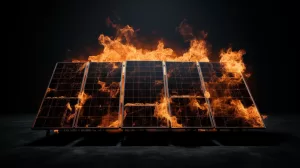
Photovoltaic Fire Safety Guide: How to Reduce the Risk of Power Plant Fires?
The risk of fire in photovoltaic power plants is on the rise. This article, based on European policy standards, provides a detailed explanation of design optimization, operation and maintenance strategies, and emergency response measures to enhance fire safety levels.
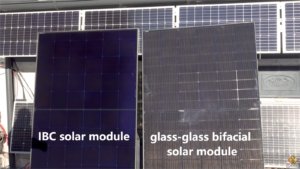
IBC Solar Modules vs. Bifacial Glass-Glass Solar Modules: Which Is More Suitable for Low-Light Conditions?
Discover the performance of Maysun Solar’s IBC full-black solar modules and bifacial glass-glass modules under low-light conditions. Based on real-world test data, this article offers scientific guidance for photovoltaic system selection to help you optimize energy efficiency and investment returns.
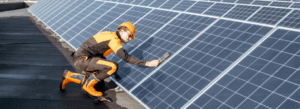
How to Design Low Maintenance High Yield Commercial and Industrial Photovoltaic Systems
How to build low-maintenance high-return photovoltaic plants This article analyzes the cost challenges and optimization paths of commercial and industrial photovoltaics in Europe helping enterprises achieve payback within 5–6 years and steadily increase long-term returns
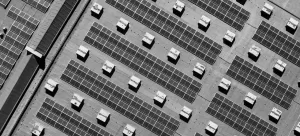
How Building-Integrated Photovoltaics (BIPV) is Changing the Commercial and Industrial Rooftop Solar Market
BIPV in Europe is reshaping the landscape of commercial and industrial rooftop photovoltaics, integrating building and power generation functions while offering policy incentives, economic returns, and ESG value. This article analyzes the advantages of BIPV in technological innovation, business models, and investment returns, helping enterprises seize the opportunity for green transformation.

How to Effectively Clean and Intelligently Maintain Photovoltaic Systems for Optimal Performance?
Explore how scientific cleaning and intelligent maintenance can ensure the efficient operation of commercial and industrial photovoltaic systems. Practical advice covers module cleaning frequency, monitoring system configuration, and long-term strategies for energy savings and performance enhancement.

2025 European Photovoltaic Policy Map: Deployment Paths and Regional Strategies for Commercial and Industrial Photovoltaics
A comprehensive analysis of the 2025 European commercial and industrial photovoltaic policy map, focusing on deployment strategies, incentive comparisons, and zero-investment models to support businesses in achieving an efficient and green transition.

